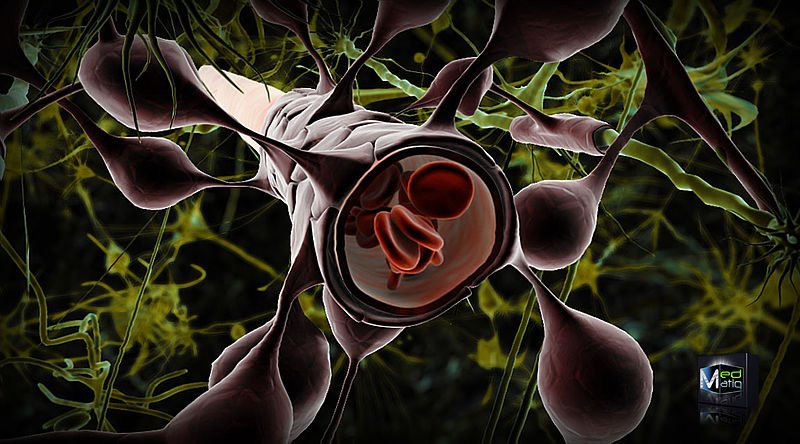Stroke and other injuries to the brain are often followed by severe inflammation, caused by a reaction of the body’s immune system. Whilst it is a natural reaction process to repair the damage to the brain, excessive inflammation causes further damage. This has led a tendency to administer anti-inflammation drugs that hinder the immune system.
Now researchers Lund University in Sweden and the Weizmann Institute in Israel are testing the assumption that the immune system could in fact be helpful with recovery following a stroke, the second leading cause of death worldwide.
Related Stories:
New Device To Identify Brain Hemorrhage Without Radiation
Viagra Slows Blood Flow In Brain Of Stroke Victims, Study Shows
The immune system’s role
One of the biggest enigmas in the field of acute or chronic neurodegenerative diseases, such as stroke and Alzheimer’s disease, is the role of immune cells in the recovery from these diseases.
“If there is a sterile wound, such as a scratch, the cells of the immune system are recruited to clean dead cells from the affected area, and to facilitate regeneration and tissue restoration,” says Prof. Michal Schwartz, one of the project’s lead researchers.
“In the case of brain damage, spinal cord injuries, or stroke, only minimal recovery occurs, and the patient remains paralyzed. This led to the widespread assumption that the brain has no ability to recruit immune cells to aid healing,” she adds.
Solving the enigma
Sign up for our free weekly newsletter
SubscribeIn the fall of 2010, the European Union announced a call for research proposals in the field of Neuroinflammation, with the aim of recruiting a group of scientists to join forces and contribute to the resolution of the enigma regarding the role of inflammation in the central nerve system. The overall goal was to identify the conditions under which such inflammation is beneficial and should be boosted – and when it is detrimental and should be regulated.
Prof. Schwartz from the Weizmann Institute in Israel and Prof. Zaal Kokaia, Head of Laboratory of Neural Stem Cell Biology & Therapy at Lund Stem Cell Center in Sweden, are now heading the project, calledTargetBraIn. Their team consists of research groups from six countries – Sweden, Germany, Switzerland, England, Italy and Israel, and has received a Euro 12 million grant from the European Union.
Shifting paradigms
Due to the assumption that immune cell entry to the brain is harmful, not only did doctors not encourage immune cell entrance, they even administered anti-inflammatory drugs to prevent any immune cell infiltration. It was assumed that the brain was too delicate to accept help from the immune system.
“My group at the Weizmann Institute of Science in Israel, a pioneer in this field since 1998, decided to reexamine the assumption that the brain is hurt by any immune activity, because it didn’t make sense,” says Prof. Schwartz.
The overall study is still at the experimental stage and according to researchers, the road to general application on patients will be long.
Photo by Ben Brahim Mohammed
Related posts

Israeli Medical Technologies That Could Change The World

Harnessing Our Own Bodies For Side Effect-Free Weight Loss

Missing Protein Could Unlock Treatment For Aggressive Lung Cancer




Facebook comments